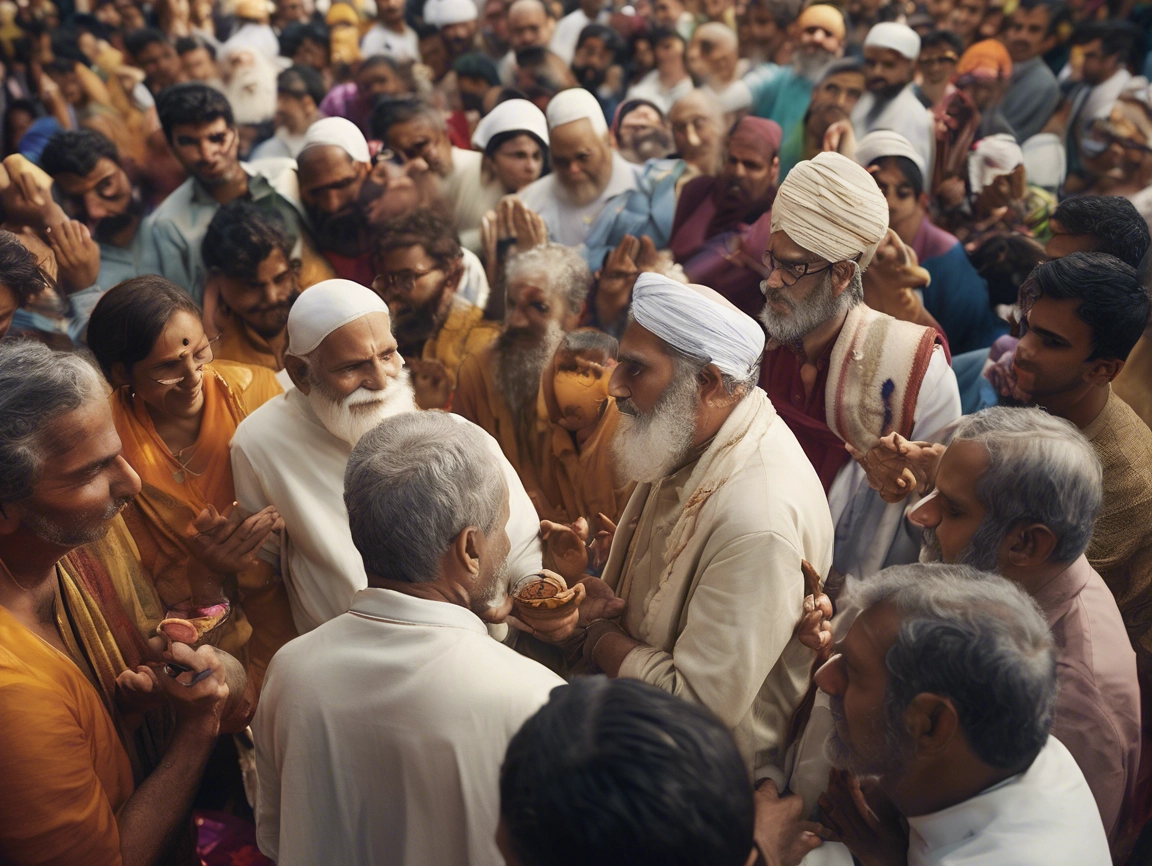
The Fine Line Between Faith and Fanaticism: Where Do We Stand?
- admin
- June 16, 2025
- Lifestyle, Philosophy
- 0 Comments
New Delhi – India, often celebrated as the world’s largest democracy and a secular state, thrives on its unparalleled diversity of faiths. Hinduism, Islam, Christianity, Sikhism, Buddhism, and countless other belief systems coexist in a complex mosaic of traditions and practices. However, this harmony is increasingly strained as faith, a deeply personal experience, sometimes spills into fanaticism, challenging the very secular fabric that binds the nation.
Where does the balance lie between practicing faith and imposing it? At what point does devotion cross into extremism, undermining the spirit of coexistence and unity that India is built upon?
India’s Secular Ideals: A Foundation Under Strain
The Indian Constitution enshrines secularism, ensuring equal respect for all religions. This unique model does not separate religion from state but instead embraces all beliefs without bias.
- Diversity as Strength: With over 79.8% Hindus, 14.2% Muslims, 2.3% Christians, and significant Sikh, Buddhist, and Jain populations (Census 2011), India exemplifies pluralism.
- Secularism in Practice: Festivals like Diwali, Eid, Christmas, and Baisakhi are celebrated across communities, showcasing shared cultural richness.
However, recent years have seen growing tensions where faith, instead of being a unifying force, has become a tool for division.
The Rise of Religious Fanaticism
Fanaticism, unlike faith, thrives on exclusion and aggression, rejecting dialogue in favor of domination.
- Mob Mentality and Vigilantism
- Incidents of mob lynching over allegations of cow slaughter or religious conversions highlight how fanaticism can distort the principles of faith.
- Such acts, justified in the name of religion, contradict teachings of non-violence and compassion central to most faiths.
- Hate Speech and Polarization
- Religious leaders and politicians sometimes exploit faith to deepen communal divides, using inflammatory rhetoric that fuels mistrust and violence.
- The rise of targeted campaigns during elections exacerbates divisions, turning faith into a political weapon.
- Cultural Policing
- Practices like opposing interfaith marriages or moral policing during festivals further blur the line between faith and fanaticism, imposing personal beliefs on others.
Faith as a Force for Unity
At its core, faith in India has always had the power to unite. Movements led by saints like Kabir, Guru Nanak, and Swami Vivekananda emphasized harmony and coexistence.
- Bhakti and Sufi Traditions: These spiritual movements transcended religious boundaries, fostering unity through shared devotion and teachings of love.
- Interfaith Solidarity: In times of crisis, communities across India often come together, exemplifying how faith can serve as a bridge rather than a barrier.
The Role of Youth in Bridging the Divide
India’s younger generation, particularly Gen Z and millennials, is increasingly challenging fanaticism while embracing inclusivity.
- Questioning Rigid Beliefs: Young Indians are vocal about issues like interfaith relationships, gender equality in religious spaces, and environmental responsibility during festivals.
- Social Media for Harmony: Platforms like Instagram and Twitter are being used to promote interfaith dialogues and highlight instances of communal unity.
However, the digital space also amplifies extremist voices, making it crucial to balance these narratives with constructive engagement.
Navigating the Fine Line
To ensure that faith remains a personal guiding force and not a tool for exclusion, it is vital to address the root causes of fanaticism:
- Promote Religious Literacy
- Educate communities about the shared values of compassion, humility, and tolerance found in all faiths.
- Strengthen Secular Policies
- Reinforce the secular ideals of the Constitution by addressing hate crimes and curbing divisive rhetoric.
- Encourage Interfaith Initiatives
- Foster programs where people of different religions can collaborate on social causes, emphasizing common goals over differences.
- Empower Youth
- Provide platforms for young leaders to advocate for inclusivity and challenge extremist ideologies.
Conclusion
India’s identity as a secular state is both its strength and its responsibility. Faith, when practiced with sincerity and respect, can inspire personal growth and societal harmony. But when it veers into fanaticism, it undermines the principles of unity and diversity that define the nation.
The challenge for India lies in walking this fine line—ensuring that faith uplifts rather than divides, and that the spirit of secularism continues to shine as a beacon of hope in an increasingly polarized world.




